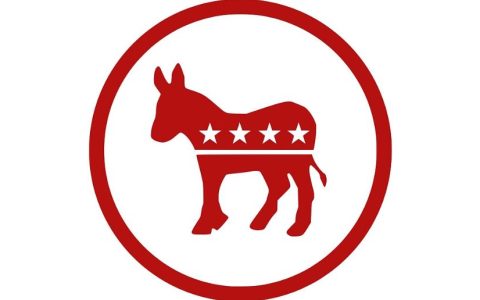
The SCOTUS has been busy with high-profile cases. Another one is being added to their docket.
And now the U.S. Supreme Court is preparing rulings that will fundamentally change America.
Supreme Court to Review Transgender Sports Bans Amid Public Opinion
The U.S. Supreme Court will examine two cases concerning restrictions on transgender individuals participating in female student sports, the court announced Thursday. These cases originate from West Virginia and Idaho, where transgender students are contesting state laws prohibiting their involvement in women’s athletics, according to NBC News.
In West Virginia, Becky Pepper-Jackson, a 15-year-old transgender high school student, and in Idaho, Lindsay Hecox, a 24-year-old transgender college student, secured injunctions permitting them to compete in female sports. Pepper-Jackson uses puberty-blocking drugs, while Hecox undergoes testosterone suppression and estrogen therapy.
The Supreme Court is set to hear arguments in its upcoming session starting in October, with rulings anticipated by June of next year.
This move comes on the heels of the court’s recent decision to uphold a Tennessee law prohibiting transgender surgeries, puberty blockers, and hormone treatments for minors.
Recent polls indicate a strong public consensus against biological males competing in women’s sports. A 2023 Gallup poll found that 69% of Americans believe transgender athletes should compete only on teams matching their birth s*x, with only 26% supporting participation based on gender identity. This sentiment has remained consistent, with a 2022 YouGov survey showing 63% of respondents opposing biological males in female sports, citing concerns over fairness and physical advantages.
The issue has gained traction as states like West Virginia and Idaho enact laws to preserve single-s*x sports categories. These laws reflect public concern, as evidenced by a 2024 Rasmussen Reports survey where 71% of Americans agreed that biological males have a competitive edge in women’s sports, potentially undermining fair play. This perspective is particularly strong among parents of student-athletes, with 78% in the same survey expressing unease about mixed-s*x competitions.
Advocates for these bans argue that biological differences, such as muscle mass and bone density, persist even after hormone therapy. A 2020 study published in Sports Medicine found that while testosterone suppression reduces some advantages, it does not fully eliminate them, particularly in strength and speed, after years of male puberty. This scientific evidence fuels public skepticism about allowing transgender women to compete in female categories.
Opponents, however, argue that such bans discriminate against transgender individuals and violate federal protections like Title IX. They point to cases like Pepper-Jackson’s and Hecox’s, where courts granted injunctions, suggesting that outright bans may infringe on equal protection rights. The American Civil Liberties Union, representing both students, contends that these laws unfairly exclude transgender youth from sports, ignoring their medical transitions and gender identity.
Public discourse on X reflects similar divisions. Posts from 2025 show users citing fairness and safety concerns, with one stating, “Biological males in women’s sports disrupt the level playing field women fought for.” Others advocate for inclusion, arguing that hormone therapy sufficiently mitigates advantages, though this view appears less prevalent.
The Supreme Court’s decision to hear these cases places it at the center of a heated debate. Legal experts suggest the court may weigh public opinion alongside constitutional principles. A 2023 Pew Research Center survey indicated that 65% of Americans want the court to consider public views in major rulings, which could influence how justices approach these cases.
The court’s recent Tennessee ruling shows a willingness to uphold state restrictions on transgender medical interventions, potentially foreshadowing a similar stance on sports bans. However, the injunctions in West Virginia and Idaho highlight judicial caution, as lower courts have prioritized individual rights pending full review.
Public opinion also varies by demographic. A 2024 NBC News poll found that 74% of Republicans and 61% of independents oppose biological males in female sports, compared to 44% of Democrats. This partisan divide complicates the court’s task, as it must balance state authority, federal law, and societal views.
The scientific and cultural debate extends beyond the U.S. International sports bodies, like World Athletics, have tightened rules, banning transgender women who experienced male puberty from elite female competitions. A 2025 BBC report noted that 67% of surveyed Americans supported similar restrictions for high school and college sports.
Critics of transgender inclusion often cite high-profile cases, like Lia Thomas, a transgender swimmer who won NCAA titles in 2022, sparking backlash. A 2023 X post with thousands of engagements called Thomas’s victories “a loss for women’s sports,” reflecting ongoing public frustration.
The Supreme Court’s rulings could set a precedent for how states regulate transgender participation in sports. With 24 states having passed similar bans by 2025, according to the Trans Legislation Tracker, the court’s decision will likely shape national policy.
Legal scholars argue that the court must consider both the Equal Protection Clause and states’ rights to regulate education. The public’s strong preference for s*x-based sports categories may sway justices, especially given the court’s conservative majority.
Stay tuned to the DC Daily Journal.





